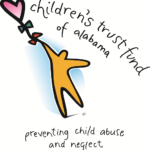As parents, our children’s safety is our top concern – and never far from our minds. We teach our kids not to run out in the street, yet are quick to grab their wrists when they approach a curb. We sit them down for the “stranger danger” discussion, yet panic at the store the moment we glance down and they’re not by our side. As our children move into their pre-teen years and then into adolescence, our protective instincts grow stronger even though – or maybe because – our kids push back against our authority.

The discussions we have with our children about the high-stakes dangers of drugs and alcohol can be especially fraught. We may fear putting ideas into their heads. They may rebel at our perceived nosiness. While it’s never too late to talk about substance use and abuse with our children, having an ongoing discussion beginning at a young age helps keep the channels of communication open and equips them with the tools they need to resist temptation. “We avoid having these conversations because we’re afraid it’s going to spark their curiosity,” says Latrice Dailey, Adolescent Counselor at Beacon Recovery, a UAB Medicine-affiliated outpatient substance abuse treatment program for adults and teens ages 13 to 18. “But the curiosity – and often the opportunity to use substances – is already there.”
Here is a roadmap for having age-appropriate discussions about drugs and alcohol with your children.
Early Childhood
The time from preschool through second grade presents several opportunities to broach drug-related topics. For example, if your child has an ear infection and is prescribed an antibiotic or is taking an over-the-counter pain reliever, that’s a great time to talk about medicines. You might discuss why the doctor prescribed the antibiotic and how it will help. You can point to the label and spell out that you’re following the directions exactly. If they’re interested, you may explain that the pharmacist dispenses some medicines and others can be bought at the store. You can also underscore the importance of only taking medicines when they’re needed.

Dailey says that a book or a movie can serve to launch a discussion about drugs or alcohol. “Kids connect to narratives,” she says. “A fictional scenario provides a platform that opens up a conversation.” Using age-appropriate language, talk about what’s happening in the story, why the character is making certain choices, and why it’s wrong to turn to drugs or alcohol. Answer any questions they may have, and don’t be shy about googling the answers you don’t know.
Grade School
When children are a bit older – in third through sixth grades – it’s crucial that they know they can turn to you for information and advice. To that end, be as non-judgmental as possible while also clearly communicating the importance of not using drugs. Ask them questions – perhaps spurred by something in popular culture or the news – and listen carefully to their answers.

Dailey says that this is the right age to invite kids to participate in role-playing scenarios. “Practice ways to refuse drugs in various situations,” she says. “Acknowledge peer pressure to experiment with drugs and explore ways that they can comfortably say no.” But don’t leave it at that. Also practice what Dailey calls “escalating noes,” which are needed when the first “no” doesn’t work.
For example, if your child is offered marijuana on the playground and says no, the other student might turn up the heat. An escalating “no” gives your child another out, perhaps by saying, “I’m not using drugs because my mom told me it was bad for me.” If the other student keeps up the pressure, your child escalates further by turning and walking away from the encounter.
The key to mastering “escalating noes,” says Dailey, is helping your child be assertive, direct, and tactful. “Kids have a tendency to laugh or to be passive,” she says. “They need to make their intent, their voice, and their disposition louder and stronger.”
Middle School to High School
Middle school and high school are when parents need be absolutely clear about their stance on drugs and alcohol. Dailey says adolescence is the right time to talk about gateway drugs like tobacco and alcohol, about illicit substances used in the home, and even about prescription drugs. “Don’t leave room for interpretations or assumptions,” says Dailey.

At the same time, Dailey acknowledges that lectures will surely backfire. She emphasizes the need to have conversations, encouraging the child’s questions while showing a willingness to listen without judgment. “If you overreact or act shocked, you’ll close down the conversation,” she says. “Then they’ll be reluctant to tell you what’s happening.”
As teenagers and their friends begin to get their driver licenses, it’s important to talk about the consequences of driving under the influence or getting into a car with an impaired driver. While the legal jeopardy and potential for bodily injury are real, teens don’t have a sense of their own mortality or simply may not want to rock the boat.
According to Dailey, this presents another opportunity to role play. By exploring scenarios – being offered drugs at a party or realizing that their ride home has been drinking – teens can find solutions before they need them. You may want to offer a no-questions-asked-until-morning guarantee that you’ll pick them up anytime and anywhere. You can practice how to take car keys away from a drunk driver. You may agree on a code word they can text if they need to get out of a situation and want you to phone them. “You don’t want them to have to figure it out on the fly,” says Dailey. “If they have a plan, they will confident when those situations arise.”
At Every Age
Talking to our children about drugs and alcohol is important, but there are other ways we can help our kids help themselves. For example, we can nurture resilience from a young age. Teaching coping skills will help our children deal with failure (rather than turning to drugs). Demonstrating boundary-setting skills will help them resist peer pressure (rather than giving in to drugs). Encouraging communication skills – verbal, drawing, writing – will ultimately help them express their feelings (rather than numbing them with drugs).
Our unwavering concern about our children’s safety isn’t misplaced. Children and teens are exposed to drugs and alcohol at alarming rates. Keeping the conversation open while building their self-esteem and empowering them to make smart decisions can give them the tools they need to resist the allure of substances.
If you suspect your child has a substance abuse issue, call Beacon Recovery at (205) 917-3733, extension 103 to schedule an appointment for an assessment.








